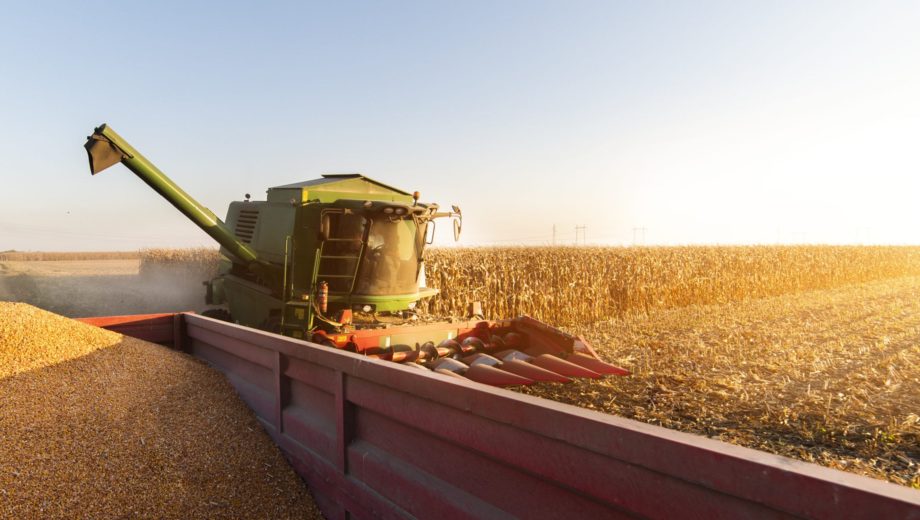
Adapting as we grow: Collaborative members move forward in a shifting landscape
The COVID-19 pandemic has changed how we work, live, and eat. Its impacts are felt acutely in the food & agriculture value chain, upending many aspects of how our supply chains operate.
Despite this tumult, the current corn- and soybean-oriented row crop system in the Midwest has largely avoided the major disruptions associated with the collapse of institutional and food service markets, whose losses were brutally demonstrated with visuals of dumped milk, smashed eggs, and vegetables plowed under. At the same time, row crop farmers aren’t escaping unscathed—we’ve seen a surge in COVID-19-related health impacts in rural areas, and the broader economic impacts of the pandemic are exacerbating already low commodity prices and shrinking farm incomes. Falling demand for both ethanol and livestock feed, two major offtake markets for corn and soybeans, add to the challenges. In the face of such uncertainty—and because many see no alternative to these guaranteed markets—farmers continue to plant corn and soybeans.
Intended to bolster the agricultural system, the federal government’s stimulus package dedicates more than $16 billion for farmers and commits $1 billion to guarantee COVID-19 loans to rural business, specifically including agricultural producers that are ineligible for Farm Service Agency loans. Yet, there are some concerns that the benefits may not accrue equitably and reach the farmers most in need of support.
All of this visible fragility has led to greater and more public scrutiny of the food & agricultural system’s long-term resilience, and we are heartened to see increasingly widespread discussion around food insecurity, the configuration of the current system, and the policies that support it.
In the short term, members of the Midwest Row Crop Collaborative have responded to the pandemic’s impacts by addressing immediate needs of workers and communities, including adjusting safety protocols in production facilities and supporting food relief efforts. Earlier this month, the Collaborative’s Steering Committee convened virtually to discuss their ongoing work together and what adaptations may be needed in this quickly evolving landscape. While the meeting felt worlds away from our last time together in person earlier this year, the members reaffirmed their long-term commitment to their work together and discussed progress towards their 2020 strategic priorities.
Collectively, the group now has several projects in development or underway to test approaches aimed at removing the structural barriers to a more sustainable agricultural system. Additionally, we are actively pursuing new partnerships and funding opportunities to scale our work’s impact and considering growing our membership to include new perspectives from different parts of the value chain. We continue to roll out opportunities to increase the shared learning amongst the members, including a recent internal cataloging of all the practices and strategies being utilized by members. In the second half of this year, we will dig into the findings to understand more about the most effective approaches and pinpoint the keys to their success.
The what of sustainable agricultural practices is well enough understood at this point. We know which practices can positively impact the agricultural system’s sustainability and resilience—cover crops, tillage practices, nutrient management, irrigation efficiency, integrated pest management, and the like. Our work is to better understand the how—how we can be most effective in supporting broader adoption of these practices in ways that benefit farmers, communities, and the environment.
We’re encouraged by the alignment that we see between our collective theory for systems change and the priorities being tackled by leading organizations like Field to Market and Forum for the Future. In its recent report on Scaling Regenerative Agriculture in the United States, Forum for the Future identifies several levers for change for a resilient and productive food system, highlighting the importance of financial mechanisms, engaging consumers, networks supporting farmers, demonstrating the business case, and the need for integrated, comprehensive policy reform—all priorities that we share. The report ultimately recommends one thing as key to success: unlocking collaborative action. The Midwest Row Crop Collaborative is eager to continue playing its role as a leader in driving collaborative action for change.
I share this update about the Collaborative’s work and its role in the agricultural system against the backdrop of the murder of George Floyd and the painful realities it is forcing us to face about our current systems. Among them, food & agriculture is long overdue for the difficult conversations arising about the racism and injustice embedded in its structures, and for taking the necessary action to address these injustices. Compounding the impacts of systemic racism, COVID-19 has further exposed and exacerbated deep flaws in our systems and our nation’s racial health disparities. The Collaborative’s members are responding to the tragedy and injustice in their own ways, and many have spoken out about the need for real, substantive change (which we’ve collected on Twitter @MidwestRowCrop). Looking across the full value chain, the absence of justice is unmistakable, and every bit as much a risk to the resiliency of the system as environmental threats.
We at Environmental Initiative, a Minneapolis-based nonprofit that serves as administrator for the Midwest Row Crop Collaborative, have come to recognize that all environmental issues are also issues of equity, race, and justice. Over the past three years, we have begun to reimagine what is the legitimate work of an environmental organization, the ways in which we perform our work, who should be involved, and how we contribute to larger movements. You can read more from Environmental Initiative’s CEO.
We will continue to reflect on what this moment calls for from us as a Collaborative. I’d like to hear what this means for you and your organization and how you’re centering equity in your work, please contact me at [email protected]. Together, we can start to reimagine a more resilient and equitable food & agricultural system for everyone.